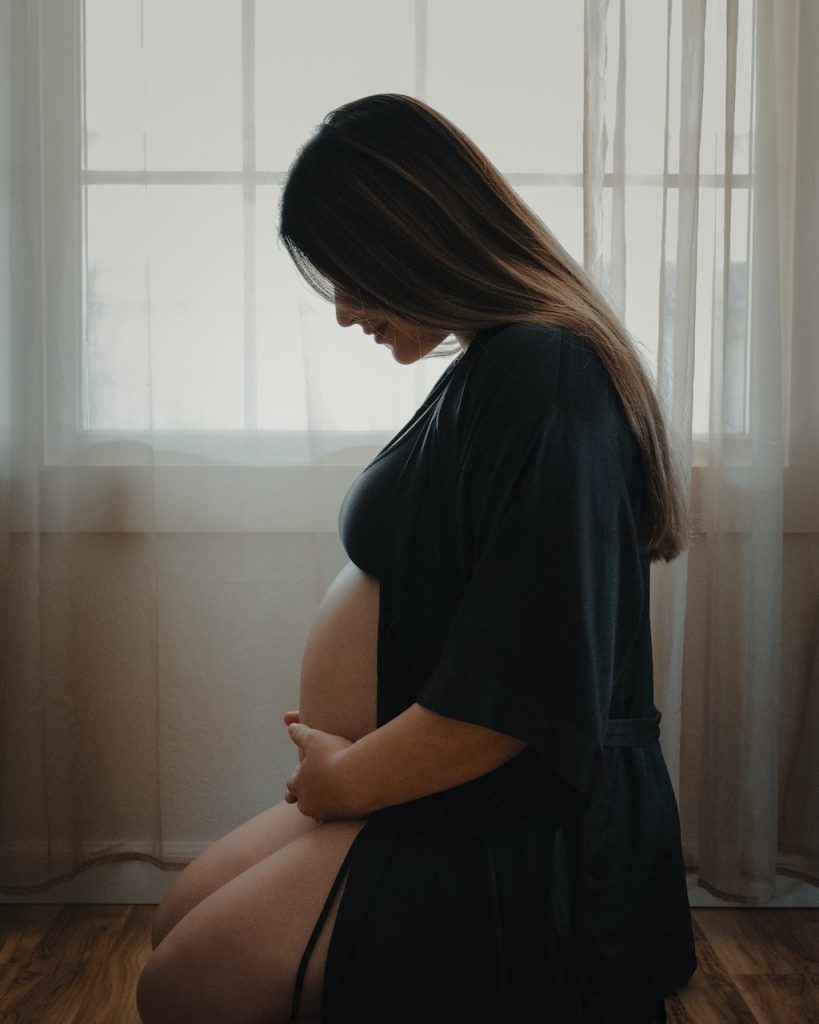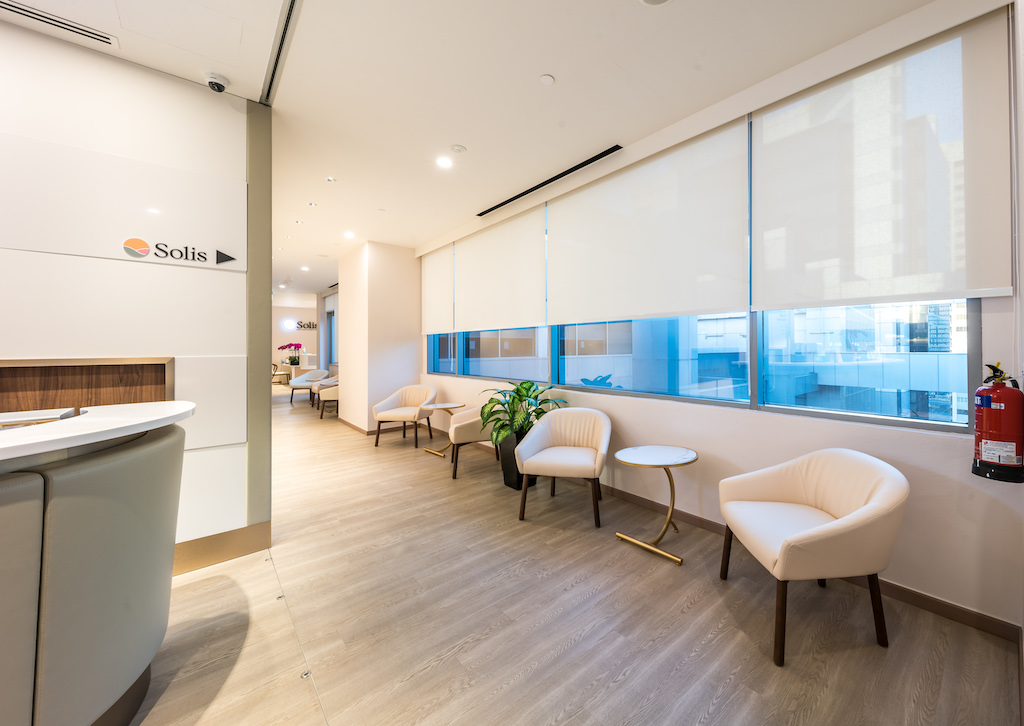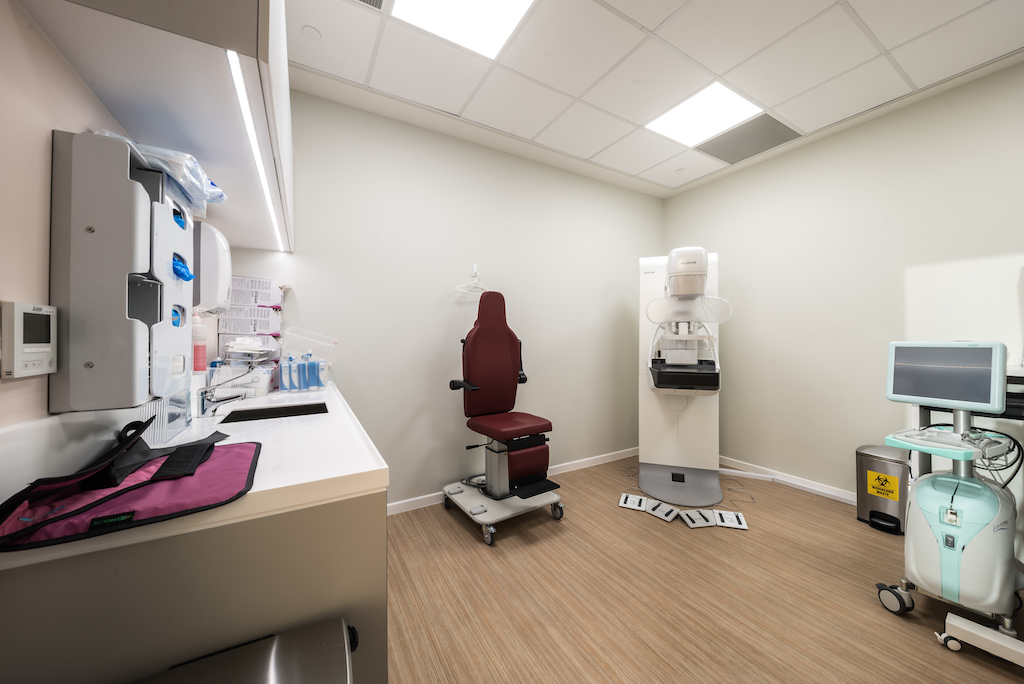SingaporeMotherhood | Pregnancy
October 2022
Breast Cancer and Pregnancy

Breast cancer during pregnancy is known as gestational breast cancer, or pregnancy-associated breast cancer (PABC). It refers to breast cancers that occur whilst pregnant, in the first year postpartum, or during lactation. The good news is that breast cancer during pregnancy is relatively rare. It presents in just one in 3,000 to 6,000 women. The not-so-good news is that when breast cancer does occur during pregnancy, it can be hard to diagnose. This is because changes in the breast that arise during pregnancy (such as breast enlargement) often make it difficult to identify changes in the breast that come about because of breast cancer.
This was the case for one of Dr Tang Siau-Wei’s patients. After delivering her second baby, the mum of two found that she had breast cancer at around nine months postpartum. She had noticed a lump in her breast for about four months, but because she was breastfeeding, the mother thought that she simply had blocked ducts. Breast massages and antibiotics helped, but did not remove the lump permanently.
An Easy Mistake to Make
“The patients either attribute it to pregnancy-related changes or breastfeeding-related changes before seeking help. By the time they get a diagnosis, it is already at a later stage,” Dr Tang, a Senior Consultant and Breast Surgeon at Solis Breast Care & Surgery Centre said. Additionally, because most women are younger when they are pregnant, it does not cross their minds that they could have breast cancer (which generally affects women older than 40 years of age).
“Pregnancy is usually a happy situation to be in. If you don’t have a family history of breast cancer you don’t think that it could happen to you. Most women who have lumps when they are pregnant and breastfeeding probably do not have cancer. If you do have lumps, and if they do not go away, then it is important to see a doctor and get checked,” Dr Tang advised.
How common is breast cancer during pregnancy?
“While breast cancer is the most common cancer in women, PABC is relatively uncommon. It affects about one in 3,000 to 6,000 pregnant women. That said, cases of PABC are increasing. The overall incidence of breast cancer generally increases with age. But as women are getting pregnant later, there is a higher risk of them being diagnosed with breast cancer following a pregnancy. This is especially so in women over 35 years old.
How is breast cancer diagnosed during pregnancy?
A lump in the breast is the most common symptom. However, there are changes in the breast that occur during pregnancy, such as breast enlargement. These often make it difficult to identify changes in the breast from breast cancer. Less common symptoms include skin redness, nipple retraction, and nipple discharge. These can mimic pregnancy-related breast changes or mastitis. Hence, symptoms such as a new lump should be carefully investigated to ensure that a malignancy is not missed.
Is breast cancer more aggressive during this time?

In general, slightly more. The majority of breast cancers in pregnant women are similar to those in non-pregnant women. However, pregnancy-associated breast cancers are predominantly diagnosed at a more advanced stage, particularly in those diagnosed while lactating.
Is it safe to continue the pregnancy?
In most cases, yes. It is a decision that doctor and patient will discuss, on a case by case basis. We also have to evaluate the patient’s priorities, what the risks are, and whether she is willing to assume a possible risk of foetal toxicity or complications from breast cancer treatment during pregnancy. We also consider her prognosis and ability to care for her offspring, the effect of treatment on her future fertility, and how her PABC will affect the baby.
How safe is breast cancer treatment during pregnancy?
Pregnant women can undergo the same local treatment options as non-pregnant patients, with the exception of radiation therapy. As in non-pregnant women, surgery is the definitive local treatment. This has minimal foetal risk at any trimester of pregnancy. Chemotherapy is generally safe after the first trimester. However, chemotherapy in the second or third trimester may cause intrauterine growth restriction, lower gestational age at birth (prematurity), and low birth weight in about one-half of exposed infants.
Will I be able to deliver my baby normally?
In most circumstances yes. If you need chemotherapy, the timing of delivery must be carefully considered. Ideally, delivery should occur after the mother’s white blood cell count and platelet count have returned to normal. This is to reduce the potential risk of complications and bleeding from thrombocytopenia (when the platelet count is too low). Hence, we avoid chemotherapy for three to four weeks before delivery, whenever possible. We also try to deliver the foetus after 34 or more weeks of gestation. The baby will be fully formed by then, and complications of prematurity are relatively low.
Can I breastfeed my baby?
As a general rule, women receiving chemotherapy and endocrine therapy should avoid breastfeeding. After treatment however, breastfeeding appears to be safe. In addition, milk production from the non-treated breast is not affected. Although many women are able to produce milk from the treated breast, the amount of milk is typically less. It can also be difficult to treat mastitis if it occurs.

Will having breast cancer make it harder for me to conceive?
Young breast cancer survivors may experience infertility after breast cancer. This is due to chemotherapy-related gonadotoxicity, which is a temporary or permanent damage to ovaries after exposure to certain substances or drugs. Women who are taking hormonal therapy should also delay childbearing. In general, we typically advise women to wait for at least two years before attempting pregnancy. This is to ensure that the patient does not have early cancer recurrence
If the woman is young, and has not completed her family, we refer her to reproductive medicine specialists to consider fertility preservation prior to the start of chemotherapy. Together with the patients’ family, friends and other breast cancer survivors, this forms a strong psychosocial support network to help these patients overcome the challenges of cancer treatment.
What should I do if I find out that I have breast cancer while pregnant?
Speak to your surgeon / oncologist about the best treatment options. These could include surgery, chemotherapy, or radiation therapy. You can have surgery in any trimester of pregnancy. Chemotherapy is generally safe after the first trimester till the last three weeks before delivery. As far as possible, you should avoid radiation therapy during pregnancy. However, it is a treatment option after delivery.”
Caring for your Breasts, before, during, and after Pregnancy


According to the Singapore Cancer Registry, breast cancer is the most diagnosed cancer among women in Singapore. It is also the leading cause of cancer deaths among women here. While gestational breast cancer, or pregnancy-associated breast cancer remains relatively uncommon, it can still happen. So do continue to keep on doing your monthly BSE, or breast self-examination, even when you are pregnant, and after. In addition, go for regular mammogram screenings once a year if you are between 40 and 49 years old (after discussion with your doctor on the pros and cons of it), and once every two years from age 50 onwards.
Dr. Tang Siau-Wei is a Senior Consultant and Breast Surgeon at Solis Breast Care & Surgery Centre. She obtained her BMedSci (Hons) and medical degree from the University of Nottingham (UK), and did her initial surgical training in the Trent Deanery in the United Kingdom. Dr. Tang completed her advanced specialist training in General Surgery at National University Hospital and obtained the Fellowship of Royal College of Surgeons of Edinburgh, UK [FRCS (Edin)] in General Surgery. She learnt advanced surgical techniques on breast conservation and partial reconstruction in Korea and Japan, and is able to support her patients with breast conservation surgery as well.
(See also: Care, Problems, and Treatments for your Breasts after giving Birth, and Breastfeeding)
Featured image: Olha Ruskykh
All content from this article, including images, cannot be reproduced without credits or written permission from SingaporeMotherhood.
Follow us on Facebook, Instagram, and Telegram for the latest article and promotion updates.





